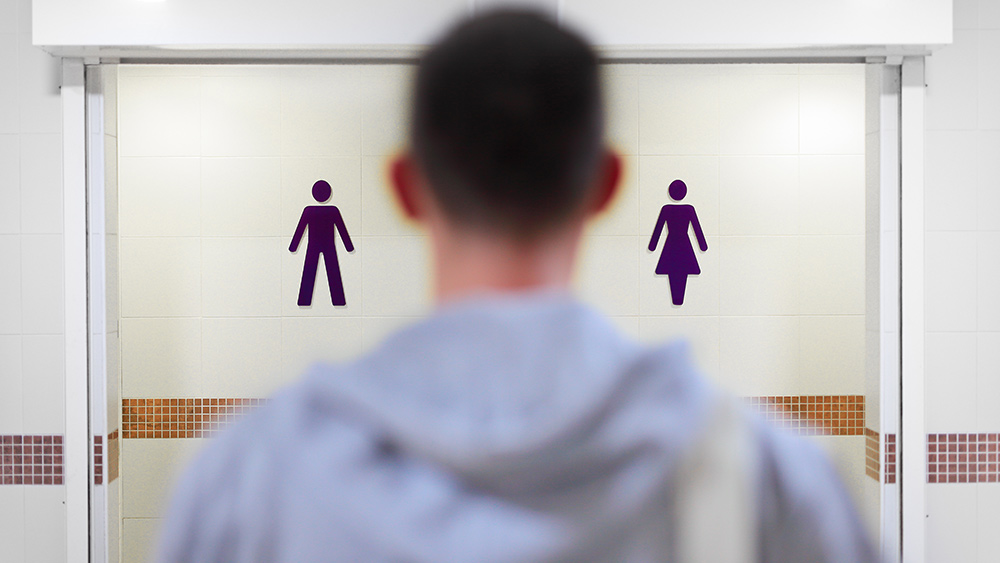Teens’ rising aggression, hallucinations linked to early cellphone use, study finds
By isabelle // 2025-02-01
Tweet
Share
Copy

- A Sapien Labs study links early smartphone use in teens to increased aggression, hallucinations, and detachment from reality.
- 37% of 13-year-olds reported suicidal thoughts, with nearly half feeling detached from reality.
- Mental health declines sharply with each younger generation, particularly among girls, with 65% classified as distressed or struggling.
- Experts suggest delaying smartphone use until at least age 13 to promote healthier social and brain development.
- Electromagnetic radiation (EMR) from devices may also contribute to behavioral and cognitive issues in children.
A generational decline in mental health
The study highlights a concerning generational trend: mental health and well-being are worse with each successive younger generation. Historically, psychological well-being followed a U-shaped curve, with younger and older generations faring better than middle-aged adults. However, that curve has collapsed, with today’s teens reporting poorer mental health than young adults, who in turn fare worse than older generations. “The trend is particularly pronounced in girls,” the authors noted, with 65% of female respondents classified as “distressed or struggling” to the point of clinical concern. This decline is linked to the increasingly younger age at which children are receiving smartphones. The study found that 13-year-olds are significantly more likely to experience aggression, anger, and hallucinations compared to 17-year-olds. For example, 37% of 13-year-olds reported feelings of aggression, compared to 27% of 17-year-olds. Similarly, 20% of 13-year-olds experienced hallucinations, a figure that drops to 12% among 17-year-olds. “These rapidly increasing problems of aggression and anger & irritability, particularly in females, can in a large part be attributed to the increasingly younger age at which children are now getting a smartphone,” the authors wrote. They noted that 13-year-olds typically received their first phone at age 10, while 17-year-olds got theirs at 11 or 12. The researchers also found that nearly half of teens felt detached from reality, while over half reported that feelings of sadness, guilt, and anxiety caused serious problems in their daily lives.The role of EMR exposure
While the study primarily focused on the psychological impacts of smartphone use, some experts argue that electromagnetic radiation (EMR) emitted by devices could also play a role. W. Scott McCollough, lead litigator for Children’s Health Defense’s EMR & Wireless cases, pointed to studies showing that EMR exposure can lead to behavioral changes and decreased cognitive ability in children. “The RF radiation of the devices itself is just as harmful as the content that the user engages with,” said Miriam Eckenfels, director of CHD’s EMR & Wireless Program. The study’s authors urge parents to delay giving their children smartphones until at least age 13, emphasizing the need for healthier social development. Addiction psychologist Dr. Nicholas Kardaras, who was not involved in the study, echoed these concerns. “Screen time essentially acts as a toxin that stunts both brain development and social development,” he said. “The younger a kid is when given a device, the higher the likelihood of mental health issues later on.”A troubling future
The study paints a grim picture of the future if current trends continue. With children receiving smartphones at increasingly younger ages—sometimes as early as toddlerhood—the mental health crisis among teens shows no signs of abating. As Tara Thiagarajan, chief scientist at Sapien Labs, warned, “Once you have a phone, you spend a lot less time with in-person interaction, and the less you have in-person interaction, the less integrated you are into the real social fabric.” The findings serve as a wake-up call for parents, educators, and policymakers to rethink the role of smartphones in young lives. Without intervention, the study suggests, society may face a future where aggression, detachment, and mental health struggles become the norm for the next generation. Sources for this article include: ChildrensHealthDefense.org SapienLabs.org NYPost.comTweet
Share
Copy
Tagged Under:
addiction radiation mental health teens screen time future tech cognitive ability electromagnetic radiation cellphone use EMR
You Might Also Like
Trump warns: China’s DeepSeek AI breakthrough a wake-up call for U.S. tech
By Cassie B. // Share
Trump calls for woke-free America: Censors and indoctrinators targeted
By Finn Heartley // Share
Recent News
Bank of America's ANTI-CONSERVATIVE BIAS exposed as Congressional GOP probes de-banking scandal
By ramontomeydw // Share
Teens’ rising aggression, hallucinations linked to early cellphone use, study finds
By isabelle // Share
Trump administration unveils new rules to expand White House media access
By bellecarter // Share
Sen. Rand Paul: The data is clear that COVID-19 leaked from a lab
By arseniotoledo // Share










